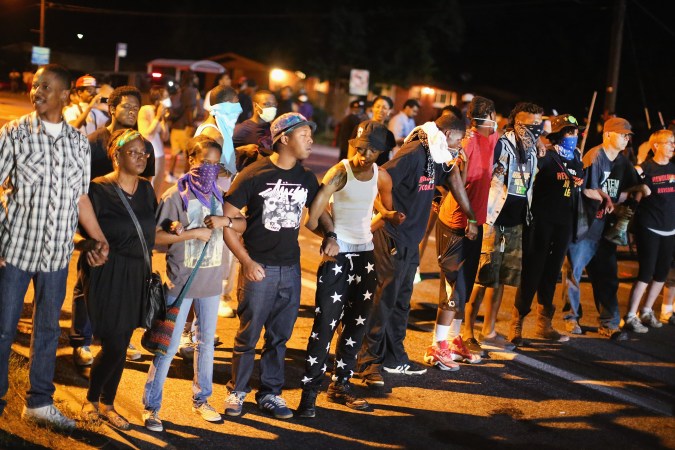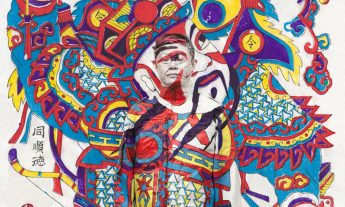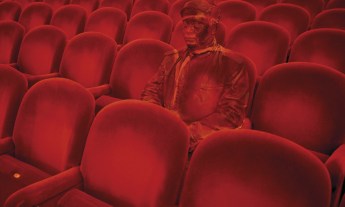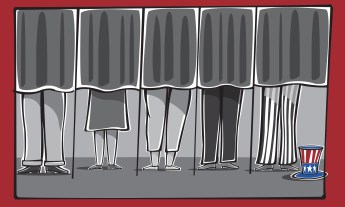
Eric Liu is on a mission to make civics “as sexy as it was during the American Revolution or the Civil Rights Movement.” As he describes in today’s TED Talk (watch: Why ordinary people need to understand power), we are at a moment of crisis in the United States. The average person simply doesn’t know how to participate in local government, and this means that clout is disproportionately concentrated in the hands of the few who do. Liu’s solution to this imbalance? That we teach everyone the basic skills of power.
As the people of Ferguson, Missouri, stand up against police brutality, the topic of how to take back civic power is on many minds. Through Citizen University, Liu is creating a shared curriculum of power that will be available soon. In the meantime, he offers up several basic skills it will include, to help anyone interested in influencing change right now.
Skill #1: Understand the system.
“Before you can learn to write power, you’ve got to learn how to read it,” says Liu. To do this, you probably need some motivation. Liu recommends choosing an issue you care about — we’ll use the example of police brutality here, but it could be anything. “Looking through the lens of your issue, take inventory of the forms of power that are in play in your community. Get literate in the way decisions get made,” says Liu. “Understand what bodies have the authority to make decisions on the issue you care about, and start observing who has influence over those bodies.” Overall, Liu recommends asking yourself: Who has formal and informal power in my community, and how did those arrangements come to be? And beyond that: what would I need to do to claim more power than I currently have? “These are not questions that people tend to ask, unless there is a moment of crisis,” he says.
Skill #2: Identify your objective.
Now that you’ve chosen an issue that matters to you, it’s time to pivot to think about what you’re going to do about it. The big question here: What do I want to change in my town? Liu looks back to the example of police brutality, to show how an individual can move from the conceptual down to specific policy changes that they’d like to see. He says, “For police brutality, it could be saying, ‘I want more public accountability for police.’ Or ‘I want more outreach from police and city leaders to communities of color and poor communities that are getting most impacted by police mistreatment.’”
Skill #3: Sharpen your sense of strategy.
Next, you need to figure out how to activate the forms of power that are at your disposal. “That can mean organizing people. That can mean putting ideas out there, on social media or elsewhere, to change minds and mindsets. That can mean mobilizing money,” says Liu. This skill is about figuring out the concrete resources you have to work with. “For the example of police brutality, you may want to deploy both an inside game and an outside game,” says Liu. “The inside game is working the machinery of city government and policy-making to ensure that there is more pressure brought to bear on misbehaving police. The outside game is activating citizens who are subject to mistreatment, and building alliances with others who aren’t but have a lot clout. It’s engaging local media to elevate this set of issues in the community agenda. It’s linking up over social media with other citizens in other cities who are trying to do the same thing.”
Skill #4: Tell a story.
An often-overlooked part of creating change in a community: offering a story that people can understand and digest. “You want to frame a narrative about the problem that exists and the solution you envision,” explains Liu. The key here: speaking up, in a voice that’s authentic. “For the example of police brutality, it’s explaining to people in your community just what’s happening in the way police treat citizens,” says Liu. “It’s using story and statistics to reveal to the larger public the racial disproportionality of police brutality, the abuse of authority and the over-militarization.” Part of telling the story is learning to work with storytellers in the media—and also learning how to be your own storyteller on social media.
Skill #5: Practice.
Liu wants to make sure that you practice power, over and over. “Try new approaches, note what you are learning, observe the patterns of what works, share what you know,” he says. “Learning to read and write power is like learning to read and write, period. It takes everyday practice to build fluency.”
[ted id=2060]
Want to know more? Here are a few places where you can learn about being an active citizen:
- Look for the full Citizen University curriculum, coming soon on their website.
- Attend Citizen University Conference on March 20 and 21, 2015, in Seattle, Washington.
- Head to iCivics.org, Sandra Day O’Connor’s online platform—with video games— designed to teach civic participation.
- Check out Participant Media’s TakePart.com, a digital magazine about social action.
- Or take Rock the Vote’s Democracy Class.
Featured image by Scott Olson/Getty Images

















